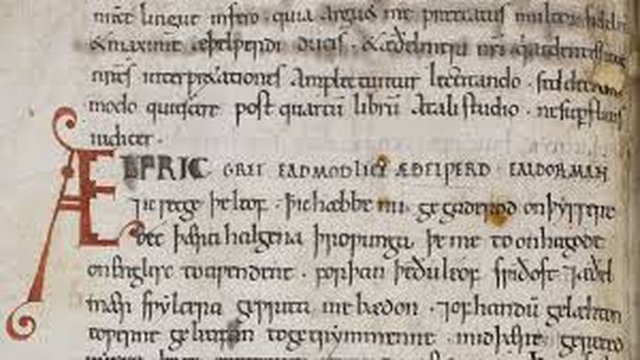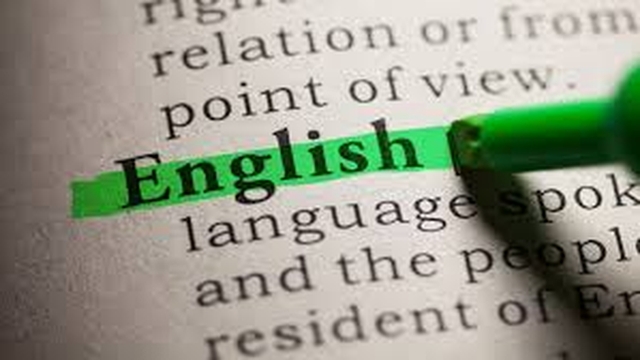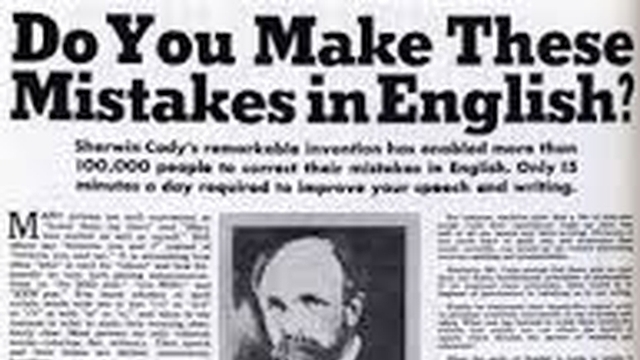Useful Reference Works
Some essential, all useful.




Pages on this mini-site:
""Books will speak plain when counsellors blanch."
—Francis Bacon, Essays, ‘Of Counsel’
There are all kinds and degrees of reference books available to the dedicated pursuivant of excellent English. Here is my list of the more important ones; other lists might differ, but beware any list that contain The Burchfield Horror (described below).
George O. Curme, English Grammar: a fine mix of rigor and reason, and pretty much the definitive English grammar. Although organized as a learning tool, its density makes it more of a reference tool—though the careful, patient reader can also use it as intended, as a textbook.
There are four key usage guides for English.
H.W. Fowler, Modern English Usage: this is the classic manual. It currently exists in three forms, each an “edition”:
the first edition is as Fowler wrote it, and despite its age, three-quarters of a century, fine advice.
the second edition, lightly updated by Sir Ernest Gowers in 1965, is passable but not so good as the original, being somewhat “dumbed down” for British civil servants.
the third edition, perpetrated (archived copy)—there is no other word—in 1996 by Robert Burchfield, is a rape, pure and simple, of the name “Fowler”; Burchfield’s wildly descriptionist perversions of the classic prescriptionist masterpiece have assured him a definite place in Hell. I made the horrid mistake, in innocence, of purchasing a copy, and now look forward to emulating Nero Wolfe’s treatment of the Webster’s Third by feeding the pages into a roaring fire, one by one. Regrettably, John Simon’s now famous savaging of Burchfield’s travesty is now behind a pay wall, but Patricia O’Conner’s essay “Running Afoul of Fowler” in The New York Times remains available for viewing.)
(The British newspaper The Telegraph quoted from the paragraph above—“Burchfield’s wildly descriptionist perversions of the classic prescriptionist masterpiece have assured him a definite place in Hell”—in their obituary of Burchfield, without attribution, which quotation was picked up and further disseminated by the Associated Press (and others): sic transit gloria mundi.)
Theodore Bernstein, The Careful Writer: Bernstein, long at The New York Times, wrote several guides, but this is the enduring one, offering thoughts on some topics not covered in the classic manuals.
Wilson Follett, Modern American Usage: (Despite the name, of use to all English speakers.) Follett died before completing this work, but the finishing touches were applied by a panel of luminaries under the enlightened guidance of Jacques Barzun, and we may well take it that Follett’s spirit rests in peace. But be afraid—be very afraid: a man named Eric Wensberg has apparently (I say that because I have only reviews to go by, having not seen The Thing) done to Follett much of what Burchfield did to Fowler. Accept no imitations—get only an original, used if need be.
Bryan Garner, Garner’s Modern English Usage: the book is more or less an “updated” mix of Fowler’s and Follett’s wisdom with, I would say, some occasional loose surrenders to descriptionism (and in the latest edition with a lot of new material by Garner); but as a relatively recent work, it is of special value.
There may be many good desk dictionaries; most I’ve seen have ranged from weak to putrid, but I certainly haven’t examined them all. That said, my own favorite is Webster’s New World College Dictionary; but, if you have internet access (as you obviously do), the wonderful American Heritage Dictionary (created expressly as a counter to the dreadful Webster’s Third) is available, at no cost to use. Whatever you do choose, I strenuously advise avoiding anything whatever from the Merriam company unless you are yourself a descriptionist.
There are several competing schemes for "style"—the nuts-and-bolts mechanics of such things as capitalization, formal titles, and where to put punctuation in (and out of) quotations. Be aware that regarding that last, there are sharp and sharply debated differences between the American and the British systems (the British is manifestly superior, but these trivial-seeming differences are enforced by publishers with much more ruthless force than grammar or even spelling).
The usual standard for American usages is The Chicago Manual of Style (now in its 17th edition), which is why I list it with the utter essentials (hey, I’m an American); but even in the U.S., there are competing manuals. Be sure to use it solely for matters of style: its concepts of grammar and usage are usually awful.
Note especially that specialist publications, particularly learned journals, often have correspondingly specialist style requirements, and appropriate specialist manuals are essential for anyone writing for publication in any such forum.
(There is also a useful on-line portal to style-information web pages for the MLA, APA, Chicago, and CSE styles.)
These are all valuable resources that supplement the ones listed above. I do not pretend for a moment that this is an exhaustive list, but I think that everything on it is something that anyone serious about using English ought to own a copy of. [See? A trailing preposition.]
I have not sorted these books in any way, but most are usage-related.
Will Strunk, The Elements of Style: a slim masterpiece, perpetually in print. Note, though, that this work is commonly known as “Strunk & White”, because E. B. White was recruited by the publishers to write an introduction to the book, but went on to do some “improving”, as well as to add a separate charpter all his own; the original Strunk is now rarely seen. The link here is to an edition of that original, which is the one that the reader should want.
Eric Partridge, Usage and Abusage: in the mainstream, but with occasional differences of opinion from that mainstream; it is witty and entertaining as well as informative.
Sir Ernest Gowers, The Complete Plain Words— (the “complete” is because this was originally two discrete books): Gowers, who edited the 2nd Fowler’s, here sets forth his own work; these were meant as "plain language" guides for government officials accustomed to writing gobbledygook, and so are less useful to the ordinary human, but are still of value.
Jacques Barzun, Simple & Direct: the title is remarkably descriptive of the book, a little gem.
Herbert Read, English Prose Style: Read is commonly acknowledged one of the all-time greatest writers in English; this book is not a look-it-up manual but a wide-ranging discourse, heavily laden with extensive samples of good and bad prose.
I have not listed particular thesauruses or books of quotations, but some of each are obviously valuable tools.
All content copyright © 2002 - 2025 by The Owlcroft Company.
This web page is strictly compliant with the W3C (World Wide Web Consortium) Extensible HyperText Markup Language (XHTML) Protocol v1.0 (Transitional) and the W3C Cascading Style Sheets (CSS) Protocol v3 — because we care about interoperability. Click on the logos below to test us!
This page was last modified on Friday, 17 February 2023, at 10:59 am Pacific Time.